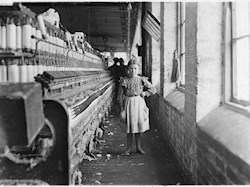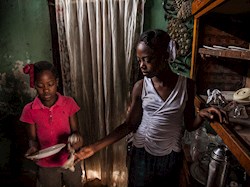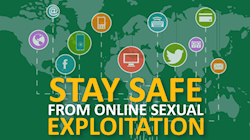Rescue is only the first step in the long road to recovery and reintegration to society. Often fearing for their lives, former slaves need safe shelter; comprehensive, specialized care; and educational opportunities and/or job skills training to ensure they complete the journey to wholeness and regain their dignity. Sadly, many victims of sexual exploitation sometimes return to the brothels or their pimps when they see no other way forward.
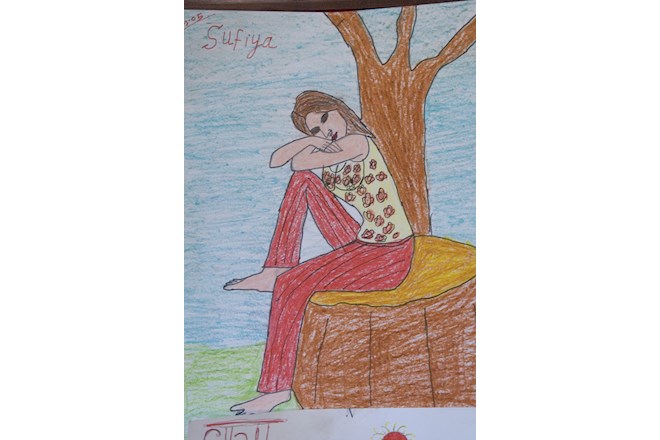
The drawing is a self-portrait by a 15-year old trafficking victim. One of nine siblings in an impoverished and abusive family, Kala ran away from home and was sold into a brothel in India, where she was subjected to unspeakable brutality. On hearing that she was going to be trafficked to the Persian Gulf, she managed to escape. With the help of a passerby, she told her story to the police. In spite of threats, she filed a complaint against the brothel keeper and her protectors in court, leading to their conviction and incarceration. Kala now lives at a Catholic shelter for rescued girls. Her dream is to become a social worker to help those who are trapped in evil.
©Kay Chernush for the U.S. State Department
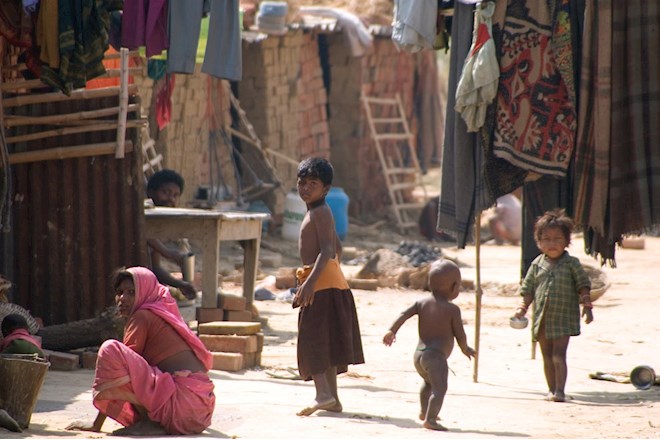
Poverty, ignorance, superstition, social customs, greed, government corruption and human cruelty combine to put families - particularly women and children - at risk. Too often, traffickers are victims' family members or neighbors.
©Kay Chernush for the U.S. State Department
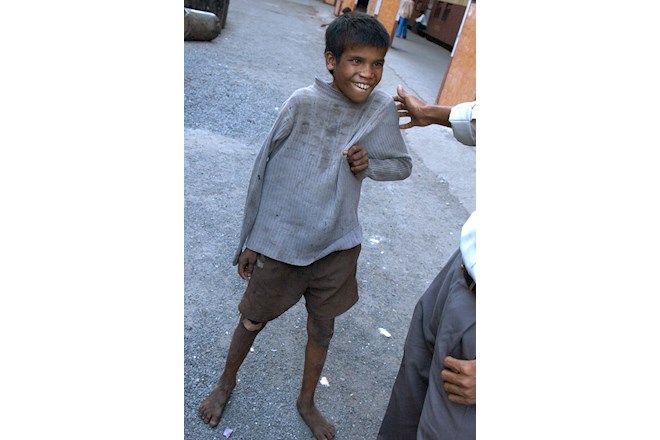
A social worker from a Catholic religious order goes daily to Mumbai's central train station to help young boys like this one who arrive from rural India thinking they will find work in order to send money home. Sometimes he convinces them to come to the shelter, where they are given a bed, schooling, medical attention and guidance. But the boys often fall prey to unscrupulous traffickers and corrupt officials.
©Kay Chernush for the U.S. State Department
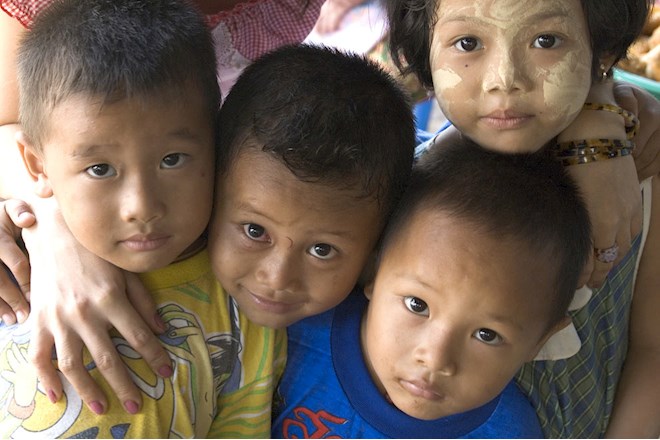
Children of Burmese migrants working in Thailand's commercial fishing industry lead particularly precarious lives. They are subject to economic hardship, discrimination, entrapment into child labor and deportation back into the very conditions their parents fled. Burma is a Tier 3 country in the 2005 Trafficking in Persons Report.
©Kay Chernush for the U.S. State Department
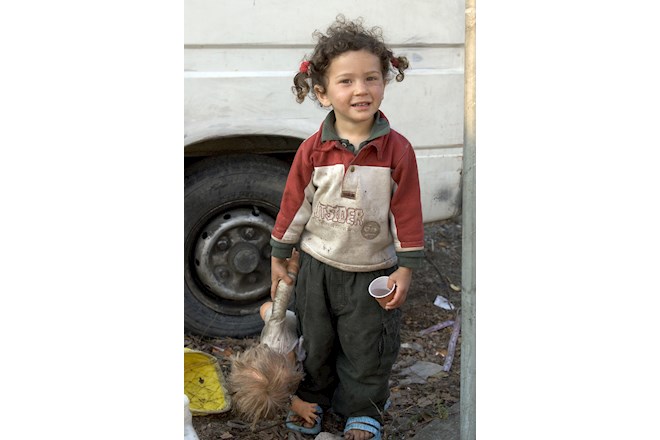
A Roma (gypsy) child finds herself on the side of a road in northern Italy, ironically wearing a shirt that proclaims, Outsider. Her family, which fled the ethnic turmoil in Bosnia, is always on the move. Poverty, discrimination and social customs combine to make Roma children vulnerable to trafficking.
©Kay Chernush for the U.S. State Department
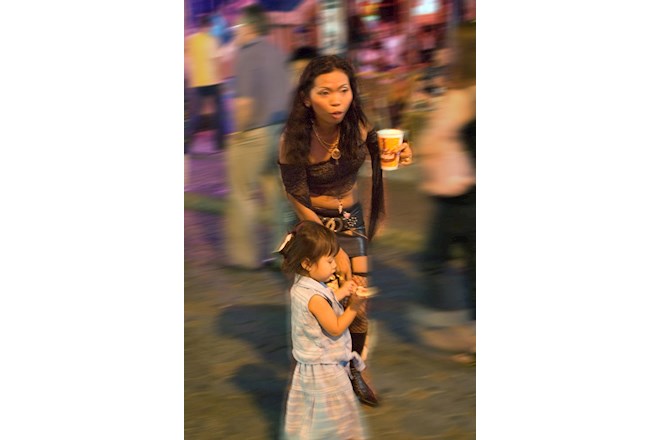
Around midnight in Southeast Asia, a woman looks after a friend's child while the friend is with a customer/exploiter. So-called second generation children of women abused in prostitution are at great risk for sexual exploitation and sex trafficking because the demand for children is high.
©Kay Chernush for the U.S. State Department
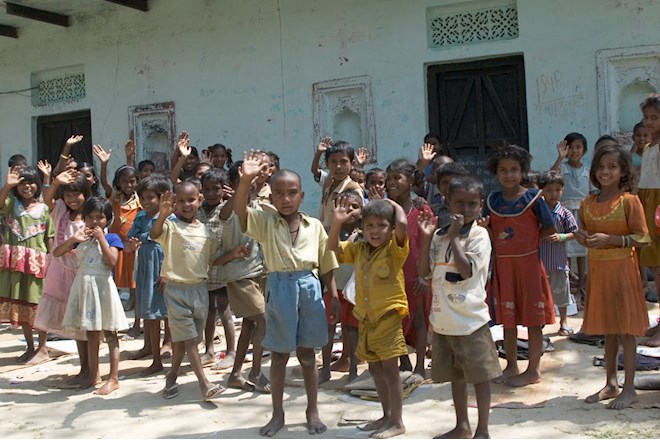
Before being rescued by an Indian non-governmental organization affiliated with Free the Slaves, most of these children were forced to work on carpet or sari looms from morning to night. Some were bonded and some were born to bonded laborers who had received an advance against their birth. Initially fearful and withdrawn, the children have blossomed in the protected environment of this special school.
©Kay Chernush for the U.S. State Department
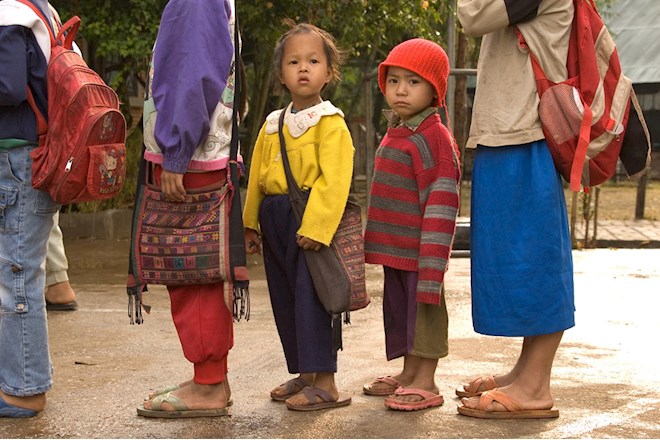
Victims of trafficking and other forms of abuse find protection and support at Baan Kredtrakarn, a government shelter in Bangkok which can care for up to 500 women and girls. While at the shelter, they are counseled, prepared for testifying in court and given vocational training in hair-dressing and traditional Thai crafts such as basket-weaving, flower-making, spinning and weaving. The shelter's goal is to help reintegrate them into society so that they can lead productive lives.
©Kay Chernush for the U.S. State Department
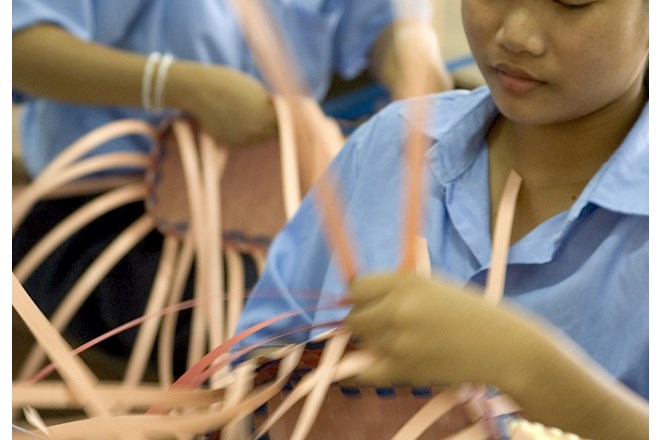
©Kay Chernush for the U.S. State Department
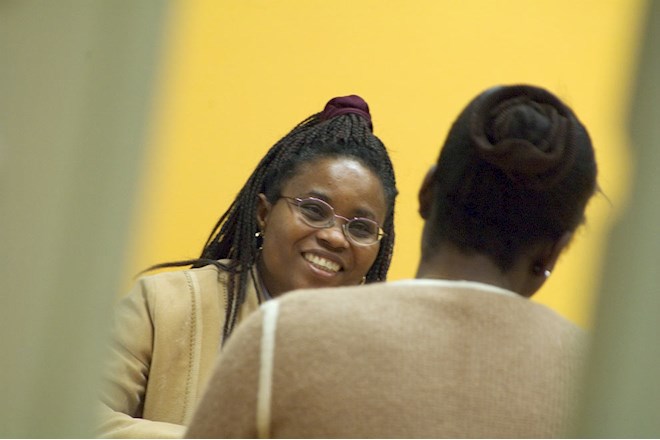
Atty. Esohe Aghatise, PhD. is the founder and director of Associazione Iroko Onlus in Turin, Italy. Here, she's discussing job options with a Nigerian sex trafficking victim. The organization provides counseling, legal and psychological support, food and basic job training. Most of the women she sees come from South Central Nigeria and are trafficked by other Nigerians, who ensnare them with tales of jobs. When they arrive and discover there isn't a job waiting, they are forced into prostitution through coercion, threats against their families at home, voodoo rites and physical violence.
©Kay Chernush for the U.S. State Department
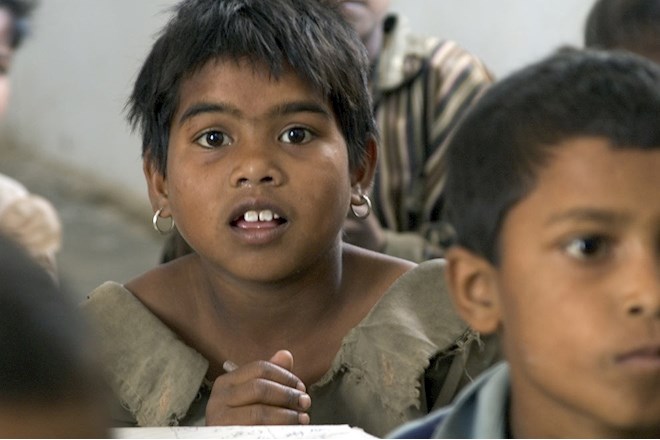
A quote from an Indian Supreme Court ruling on child labor is painted in big letters on a wall of this school for rescued children, proclaiming: Every child has the right to food, play, education and love. However, the 1,000 raids conducted over the past five years in one northern Indian district has only resulted in 40-50 traffickers being convicted and fined.
©Kay Chernush for the U.S. State Department
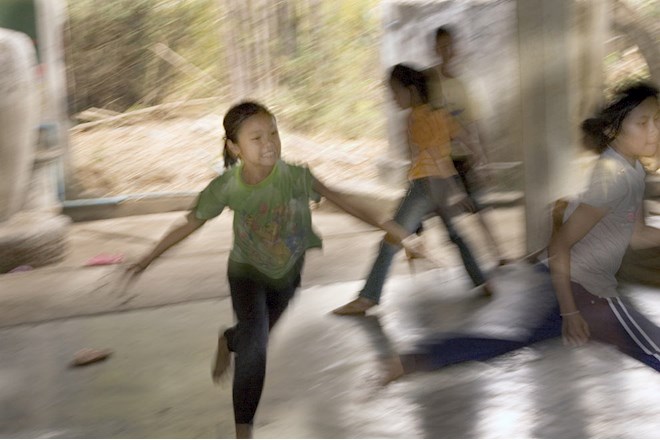
Children in Northern Thailand play at a day school where U.S. government funding helps protect girls at risk of being trafficked.
©Kay Chernush for the U.S. State Department
of
Topics:
Child Labor,
Sex Trafficking,
Awareness,
Aftercare,
Rescue



























